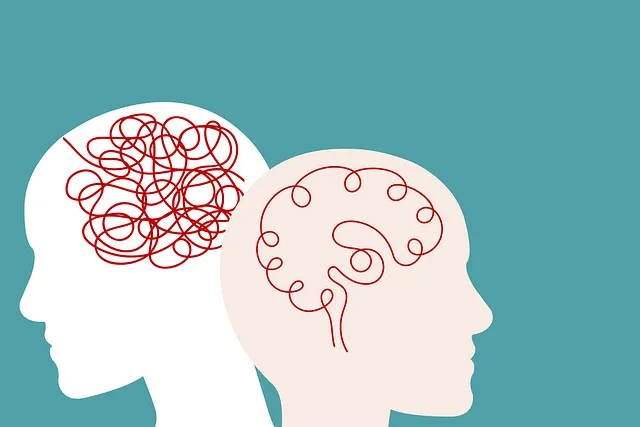In today's fast-paced world, mental wellness is crucial for overall health. Kaiser in Louisville has pioneered an innovative approach to mental health services, combining direct therapy with stress management programs. Effective self-assessment tools, featuring evidence-based questions and personalized feedback, are vital for early identification of mental health issues. These tools, accessible via user-friendly platforms, can destigmatize mental health discussions and encourage early intervention. Success is measured by user satisfaction, changes in mental health scores, and healthcare professional feedback, with continuous improvement driven by data-driven strategies.
Mental wellness self-assessment tools play a crucial role in empowering individuals to take charge of their mental health. This article explores the development of such tools, focusing on Kaiser’s innovative approach in Louisville. We’ll delve into understanding the growing need for accessible self-assessments, examine Kaiser’s comprehensive mental health services, and highlight key components for effective assessments. Additionally, we’ll discuss strategies for creating user-friendly platforms, measuring success, and ensuring continuous improvement in mental wellness support, particularly emphasizing Kaiser’s offerings in Louisville.
- Understanding the Need for Self-Assessment Tools in Mental Health
- Kaiser's Approach to Mental Health Services in Louisville
- Key Components of an Effective Mental Wellness Self-Assessment
- Developing and Implementing User-Friendly Assessment Platforms
- Measuring Success and Continuous Improvement Strategies
Understanding the Need for Self-Assessment Tools in Mental Health

In today’s fast-paced world, mental wellness is an increasingly important aspect of overall health. Self-assessment tools play a crucial role in helping individuals understand and manage their mental well-being, especially among those seeking support outside traditional therapy settings. For instance, those who are curious about their mental state or those relying on services like the ones provided by Kaiser offering mental health services in Louisville can benefit from these tools. They offer a convenient and accessible way to assess risk factors associated with mental health concerns, such as stress management and anxiety relief, without requiring an extensive consultation.
Moreover, self-assessment tools are valuable for risk management planning among mental health professionals. By providing individuals with the means to evaluate their mental wellness independently, these tools can help identify potential issues early on, enabling prompt intervention or adjustments in coping strategies. This proactive approach complements professional support and contributes to a holistic strategy for maintaining and improving mental health.
Kaiser's Approach to Mental Health Services in Louisville

In Louisville, Kaiser has pioneered an innovative approach to mental health services, addressing a critical need in the community. The organization recognizes that mental wellness is integral to overall well-being and offers a comprehensive range of support systems designed to cater to diverse needs. Their strategy involves not only providing direct therapy but also integrating burnout prevention techniques such as compassion cultivation practices and stress management programs.
By doing so, Kaiser aims to foster an environment where individuals can learn to manage stress, cultivate resilience, and ultimately, thrive in their personal and professional lives. This holistic approach acknowledges the growing recognition of mental health as a cornerstone of a healthy, productive society, especially in light of rising concerns about burnout in various sectors.
Key Components of an Effective Mental Wellness Self-Assessment

An effective mental wellness self-assessment tool should incorporate several key components to accurately gauge an individual’s psychological well-being. Firstly, it must include a comprehensive set of questions that cover various aspects of mental health, such as mood, anxiety, stress levels, and emotional regulation. These questions should be designed using evidence-based methods and validated against established psychometric standards to ensure their reliability and validity.
Additionally, the tool should offer customizable and adaptable options to cater to diverse populations, including different age groups, cultural backgrounds, and specific at-risk categories. Integration of mental wellness coaching programs within the assessment can enhance its effectiveness by providing personalized feedback and guiding users towards tailored support systems. Public awareness campaigns development around these tools can further promote early intervention and destigmatize mental health discussions in communities like Louisville, where Kaiser offers comprehensive mental health services.
Developing and Implementing User-Friendly Assessment Platforms

Developing user-friendly mental wellness self-assessment platforms is a significant step in promoting individual well-being, especially in communities like Louisville where access to mental health services, such as those offered by Kaiser, is essential. These digital tools play a crucial role in making professional assessment resources more accessible and engaging for individuals seeking support. By employing intuitive designs and interactive features, platforms can reduce the potential stigma associated with mental health issues, encouraging users to take charge of their well-being.
The implementation of such platforms should consider integrating various modules tailored to specific concerns like anxiety relief or burnout prevention strategies for healthcare providers. Incorporating resilience-building exercises has been shown to be effective in fostering positive mental health outcomes. With the right approach, these assessment tools can become valuable resources, helping users navigate their mental health journeys and providing them with practical insights and coping mechanisms.
Measuring Success and Continuous Improvement Strategies

Measuring success in mental wellness self-assessment tools development is a multifaceted process that goes beyond simple accuracy rates. It involves evaluating the impact on users’ lives, their ability to identify and address mental health concerns early on, and the overall improvement in emotional well-being. Metrics such as user satisfaction, changes in self-reported mental health scores over time, and feedback from healthcare professionals can provide valuable insights into the tool’s effectiveness.
Continuous improvement strategies are essential for enhancing these tools. Incorporating techniques like Emotional Intelligence training and effective Communication Strategies within the assessment process can foster deeper self-awareness and better coping mechanisms. Additionally, focusing on Resilience Building exercises can equip individuals with the skills to navigate mental health challenges more effectively. Organizations like Kaiser, known for offering comprehensive mental health services in Louisville, can lead the way in refining these tools by collecting user data, conducting regular reviews, and integrating feedback into iterative development cycles.
Mental wellness self-assessment tools play a pivotal role in empowering individuals to take charge of their mental health. As organizations like Kaiser recognize the growing need for accessible mental healthcare, particularly in communities like Louisville, developing user-friendly assessment platforms becomes crucial. By focusing on key components such as simplicity, validity, and reliability, we can create effective tools that facilitate early intervention and support overall well-being. Continuous improvement strategies, guided by measurable success, ensure these assessments remain relevant and impactful in the evolving landscape of mental health services. Kaiser’s innovative approach in Louisville serves as a testament to the potential of such tools in enhancing access and care for those seeking mental wellness support.






